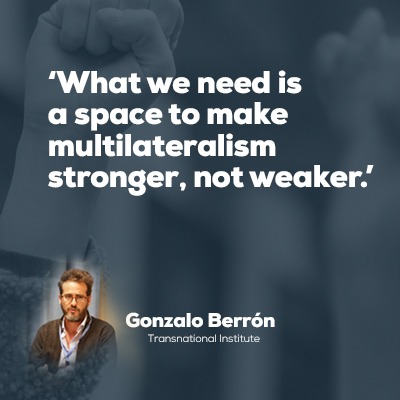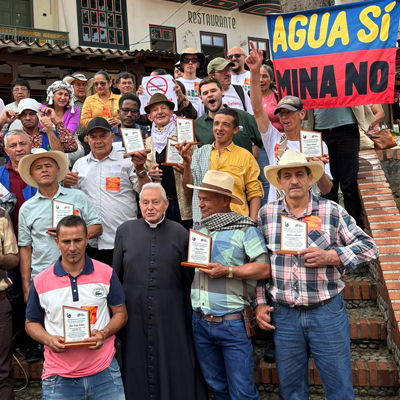UN Conference in Nairobi ignores agreements ahead of Summit of the Future
Social organisations warn that the multilateral system is moving towards the privatisation of decision-making

The United Nations Civil Society Conference, taking place this Wednesday and Thursday in Nairobi, Kenya, ahead of the Summit of the Future to be held in September in New York (United States), ‘seeks to reinstate a corporate-driven agenda rejected by States and social organisations in the Summit process.’
‘It is a crude attempt by the Office of the Secretary General to bypass the decisions made at the September 2023 Ministerial Meeting and the contents of the first draft of the Pact for the Future,’ added environmental activist Martin Drago, from Friends of the Earth International (FoEI) in an interview with Real World Radio. ‘They are trying to impose the idea that organised civil society wants multi-stakeholderism,” he said.
In other words, the Nairobi Conference brought back to life the concept of allowing various stakeholders (including private actors with special interests) to participate in the Summit of the Future even after social movements and organisations, as well as countries from the Global South succeeded in the negotiations to make the New York Summit a multilateral one (of governments) rather than multistakeholder. In fact, these parties were able to avoid mention altogether of multi-stakeholderism in the first draft of the Pact for the Future, the final document that will come out of the Summit.
Drago, who is also coordinator of the Food Sovereignty programme at FoEI, explained that in the concept note of the Nairobi Conference, the stakeholders mentioned are ‘member states, civil society, academia, think tanks (whatever they mean by that), foundations and the private sector’.
In an open letter circulated at the end of March, more than ten organisations that make up the Peoples’ Working Group on Multistakeholderism warned that the Nairobi Conference, instead of strengthening the voices of civil society and social movements, aims to put corporate-led global governance back on the agenda. ‘Beware the corporate multistakeholder strategy in civil society clothing,’ the letter highlighted.
What is the Summit of the Future?
According to the United Nations, the Summit that will take place on 22-23 September in New York, convened by Secretary-General Antonio Guterres, ‘is a once-in-a-generation opportunity to enhance cooperation on critical challenges and address gaps in global governance.’ It aims to ‘move towards a reinvigorated multilateral system that is better positioned to positively impact people’s lives.’ The idea is to come out of the Summit with a roadmap for action, the Pact for the Future.
Some of the issues on the agenda are sustainable development and development finance; peace and security; science, technology and innovation; and the transformation of global governance. ‘From the South, our vision is that these problems are related to poverty, to the responsibility of the North in the issue of climate change and climate solutions, also from a perspective of social equality and justice,’ said Gonzalo Berrón, an activist from the Transnational Institute (TNI) of the Netherlands, to Real World Radio.
According to the representative of FoEI, Drago, ‘the most relevant aspect of the Summit of the Future lies in that it is a key moment in the process of legitimising and legalising the direct participation of transnational corporations and philanthropic organisations in the decision making process of the United Nations system’. In other words, ‘they are seeking to move towards the privatisation of decision-making’, he warned .
However, the struggle continues, the defence of peoples’ rights cannot waver, and the Nairobi Conference confirms this. It is a body that ‘aims to give legitimacy to parallel structures that do not seek, but rather impede real transformation,’ and furthermore ‘ignores the conflicts of interest that exist when corporations participate in the shaping of global governance.’
What kind of multilateralism do we need?
On this issue, Berrón stressed that ‘social movements and organisations, and the countries of the Global South, are in this together.’ ‘What we need is a space to make multilateralism stronger, not weaker, because we understand that a stronger, more democratic and participatory multilateralism is going to better regulate the international system and above all those who hold power, who end up doing what they want, even within the multilateral system.’
Berrón reaffirmed Drago’s sentiment. There is a risk that the corporate capture of the multilateral system will be deepened, with mechanisms such as multi-stakeholderism. The TNI representative concluded with a call for mobilisation: ‘If we don’t move, there is no one to neutralise this influence and States will be left at the mercy of these interests.’





